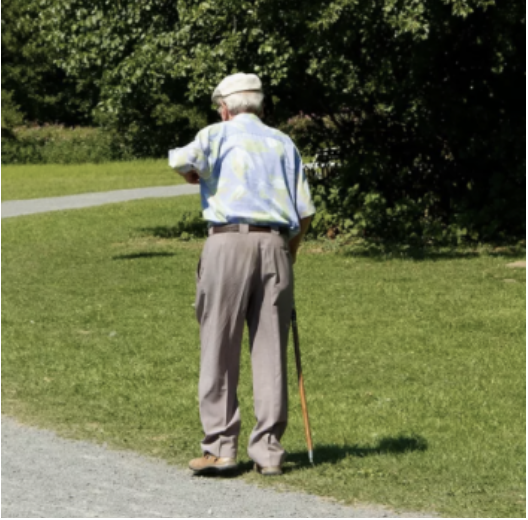 Emergency Preparedness in Retirement Homes
Emergency Preparedness in Retirement Homes
Retirement homes in Ontario are required to have emergency preparedness plans to handle medical crises, fires, natural disasters, and other urgent situations. These plans typically include:
- 24/7 emergency response systems with call buttons in residents’ rooms.
- Trained medical staff on-site or on-call for rapid response.
- Regular emergency drills and staff training to ensure preparedness.
- Coordination with local hospitals and emergency services.
Types of Medical Emergencies in Retirement Homes
Ask questions regarding retirement homes to our experts
1. Falls and Mobility-Related Injuries
- Falls are one of the most common emergencies among seniors.
- Homes implement fall prevention strategies like grab bars, non-slip flooring, and mobility assistance.
- Staff provide immediate medical attention and assess the need for hospital transport.
2. Heart Attacks and Strokes
- Retirement homes have emergency protocols for cardiac events, including CPR-trained staff.
- Defibrillators (AEDs) are available in many facilities.
- Staff quickly contact paramedics and family members in case of an emergency.
3. Respiratory Distress and Breathing Issues
- Oxygen therapy is available for residents with chronic respiratory conditions.
- Staff monitor residents with asthma, COPD, or pneumonia and provide immediate intervention.
4. Medication Errors and Adverse Reactions
- Strict medication management systems prevent overdoses and missed doses.
- In case of a reaction, staff contact medical professionals and adjust medications as needed.
5. Dementia-Related Emergencies
- Secure memory care units prevent seniors from wandering and getting lost.
- Homes implement behavioral de-escalation strategies for residents experiencing confusion or aggression.
6. Infectious Disease Outbreaks
- Strict hygiene protocols and infection control measures help prevent flu, COVID-19, and other illnesses.
- Many retirement homes provide on-site vaccinations for residents.
Emergency Response Procedures in Ontario Retirement Homes
1. Emergency Call Systems
- Residents have call buttons or wearable emergency alert devices.
- Alerts are sent immediately to on-site staff or emergency responders.
2. On-Site Medical Staff and First Aid Training
- Assisted living and skilled nursing homes have nurses available 24/7.
- All staff are trained in CPR, first aid, and emergency medical response.
3. Emergency Medical Transport
- Homes coordinate with local paramedics, hospitals, and urgent care centers.
- In serious cases, residents are transferred to the nearest hospital.
4. Family Notification and Updates
- Families are contacted immediately in the event of an emergency.
- Digital health records ensure quick access to medical history for doctors.
Comparison of Emergency Preparedness in Different Retirement Homes
Not all retirement homes provide the same level of medical support and emergency preparedness. Below is a comparison of different care types.
| Type of Retirement Home | Emergency Support Services | Best Suited For |
|---|
| Independent Living |
Emergency call buttons, basic first aid, hospital referrals |
Active seniors with minimal medical needs |
| Assisted Living |
24/7 staff, medication management, fall prevention, emergency protocols |
Seniors needing help with daily activities and medication |
| Memory Care Units |
Secure environment, behavioral crisis management, medical monitoring |
Seniors with Alzheimer’s or dementia |
| Skilled Nursing Homes |
On-site nurses, medical treatments, hospital coordination |
Seniors with complex medical conditions or mobility challenges |
How to Choose a Retirement Home with Strong Emergency Protocols
1. Ask About On-Site Medical Services
- Does the home have nurses or personal support workers (PSWs) available 24/7?
- Are doctors or medical specialists on-call?
2. Check the Emergency Call System
- Do residents have emergency buttons in rooms and bathrooms?
- Is there a wearable emergency alert system available?
3. Review Fall Prevention Strategies
- Are there grab bars, non-slip flooring, and mobility assistance programs?
- Is the staff trained to handle fall-related emergencies?
4. Evaluate Family Communication Policies
- How quickly does the home notify families in case of a medical emergency?
- Can families access real-time health updates through an online system?
5. Ask About Emergency Drills and Staff Training
- Does the home conduct regular fire, disaster, and medical emergency drills?
- Are staff trained in CPR, first aid, and crisis response?
FAQ:
1. How do retirement homes handle medical emergencies?
Most homes have on-site nurses, emergency call systems, and rapid hospital coordination to ensure immediate care.
2. Do retirement homes have doctors on-site?
Some facilities have regularly visiting physicians, while others rely on on-call doctors and hospital partnerships.
3. What happens if a resident falls in a retirement home?
Staff respond immediately, assess injuries, provide first aid, and call paramedics if necessary.
4. How do retirement homes prevent falls and injuries?
They use grab bars, non-slip flooring, mobility aids, and resident monitoring systems.
5. Are retirement home staff trained in first aid?
Yes, staff members must be certified in first aid, CPR, and emergency response.
6. What emergency communication systems do retirement homes use?
Many use call buttons, wearable medical alert devices, and digital health tracking systems.
7. How quickly do retirement homes respond to emergencies?
Response time varies, but most homes have emergency protocols to ensure immediate action within minutes.
8. What happens if a resident requires hospitalization?
Staff coordinate with paramedics and local hospitals to ensure fast medical transport.
9. Do retirement homes have evacuation plans for natural disasters?
Yes, facilities follow provincial safety regulations for fire and disaster preparedness.
10. How can families ensure a retirement home has proper emergency procedures?
- Ask for the home’s emergency plan during a facility tour.
- Check if the home has up-to-date safety certifications.
- Speak with staff about their emergency response training.
Retirement homes in Ontario prioritize resident safety and emergency preparedness through trained medical staff, emergency call systems, and rapid hospital coordination. Families should carefully evaluate a home’s medical response procedures, fall prevention strategies, and staff training programs before making a decision.
Don't hesitate to contact us at 343 309 5289. We can help you choose the right establishment for you and assist you in your search.
 Emergency Preparedness in Retirement Homes
Emergency Preparedness in Retirement Homes